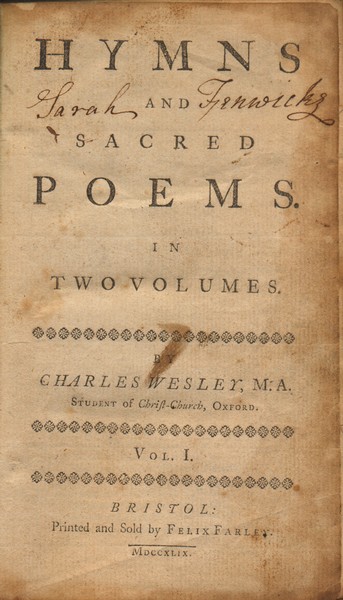 Since my family and I moved in August, we have been attending a new church. We love our new church. We love our old church. And we love all of the churches that we have had the privilege of being a part of over the years. But all of them – yes, all – have unintentionally, inaccurately reported the use of songs used in worship services and other events to CCLI.
Since my family and I moved in August, we have been attending a new church. We love our new church. We love our old church. And we love all of the churches that we have had the privilege of being a part of over the years. But all of them – yes, all – have unintentionally, inaccurately reported the use of songs used in worship services and other events to CCLI.
With the growing popularity of old hymns, the Christian community is beginning to see all kinds of hymn “rewrites” and new arrangements of classic hymns. Some have, say, a new chorus, while maintaining the original hymn lyrics as the verses, while plenty of other songs feature new music and lyrics and simply borrow the titles from old, popular hymns. Two songs with the same title now exist: the classic hymn and the modern praise chorus. Same name, two songs.
Over my time as a worship leader and through college, studying copyright law, I’ve picked up a few things on this subject that could be really helpful for other worship leaders out there. But please don’t take my word for it, as if I’m a lawyer.
Our churches all need to give credit where credit is due – to the songwriters who actually write the songs we sing. I think the Gospel demands of us to appropriate a certain level of care when reporting the songs we sing to licensing organizations like CCLI. (I don’t even know of any other church music licensing organizations.)
Here’s what I’ve learned, along with a few tips for your own churches:
1. Double-check the author’s name before reporting to CCLI (and before creating those ProPresenter slides). You can’t copyright a song title. So that means if you simply just search the CCLI website by song title, you might end up reporting the use of a song with the same title, written by the wrong author. I dare say that I have a hunch that a few, very business-savvy, popular Christian song writers and publishers today are intentionally using classic hymn titles because they realize this is happening, and they know they can earn some serious cash from churches not double-checking authorship before they report. The second part of identifying song ownership (IE: who gets paid when you play a song in church) is checking whether or not a song is in the public domain (more about that in #2).
2. Check if a song is in the Public Domain. Basically, any song [both music and lyrics] written prior to around 1850 A.D., in the U.S., is completely free for anyone to perform. No reporting. The song becomes a part of what is called the Public Domain, which means that the song, basically, is public property. Anyone can record it and sell those recordings, anyone can perform it, anyone can create sheet music for it and sell it. When churches sing hymns written prior to [about] 1850, you don’t have to report those songs to CCLI because nobody, according to U.S. law, is entitled to make money off of them. So how do you check? Just check the dates in your hymnal or search cyberhymnal.org. Do your homework. You might even find that you’re used to singing certain verses that are not a part of the original hymn, or that you don’t sing a few that were in the original. Over time, authors add new verses, publishers copyright new versions, and people forget the original words. It can be an eye-opening experience, and you might even decide to revert back to singing an author’s original lyrics.
3. Arranging a song is not the same as writing a song. If a recording artist takes a classic hymn and records it in a new arrangement, preserving both the majority of the hymn’s original melody along with the lyrics, even if he adds an instrumental bridge or cool intro and outro sections, it can not be said that he has written the song and he does not qualify to collect royalties when the song is played in your church. He has simply created a new arrangement of the song and should not collect songwriter’s royalties for this or similar arrangements. Some writers today are, in fact, collecting on this – again, because when churches report to CCLI, they are crediting the arranger/recording artist as the songwriter.
4. How to report a classic hymn with a new chorus. Okay, so a songwriter takes a classic hymn, preserves the melody and the lyrics, but adds in his own, completely original chorus. Now what? It’s pretty simple, really. If you only sing original hymn, without the additional sections from the new songwriter, it’s still just the old hymn and, assuming it’s in the Public Domain, shouldn’t be reported to CCLI. It’s not the work/song of the new, chorus-adding writer. In this case, you’re church’s song presentation slides should reflect the author(s) of the original hymn. But, if you’re church loves that new chorus section added by that new Christian songwriter, report it to CCLI and make sure to credit all the writers – original hymn and new chorus writers – in the presentation slides. For most churches, this means the hassle of keeping two different presentation files: one for the classic hymn (with the original writers) and one for the hymn with new chorus, crediting the original writers alongside the new.
Questions? Comments? Am I off somewhere here? Let me know. Comments welcome…
